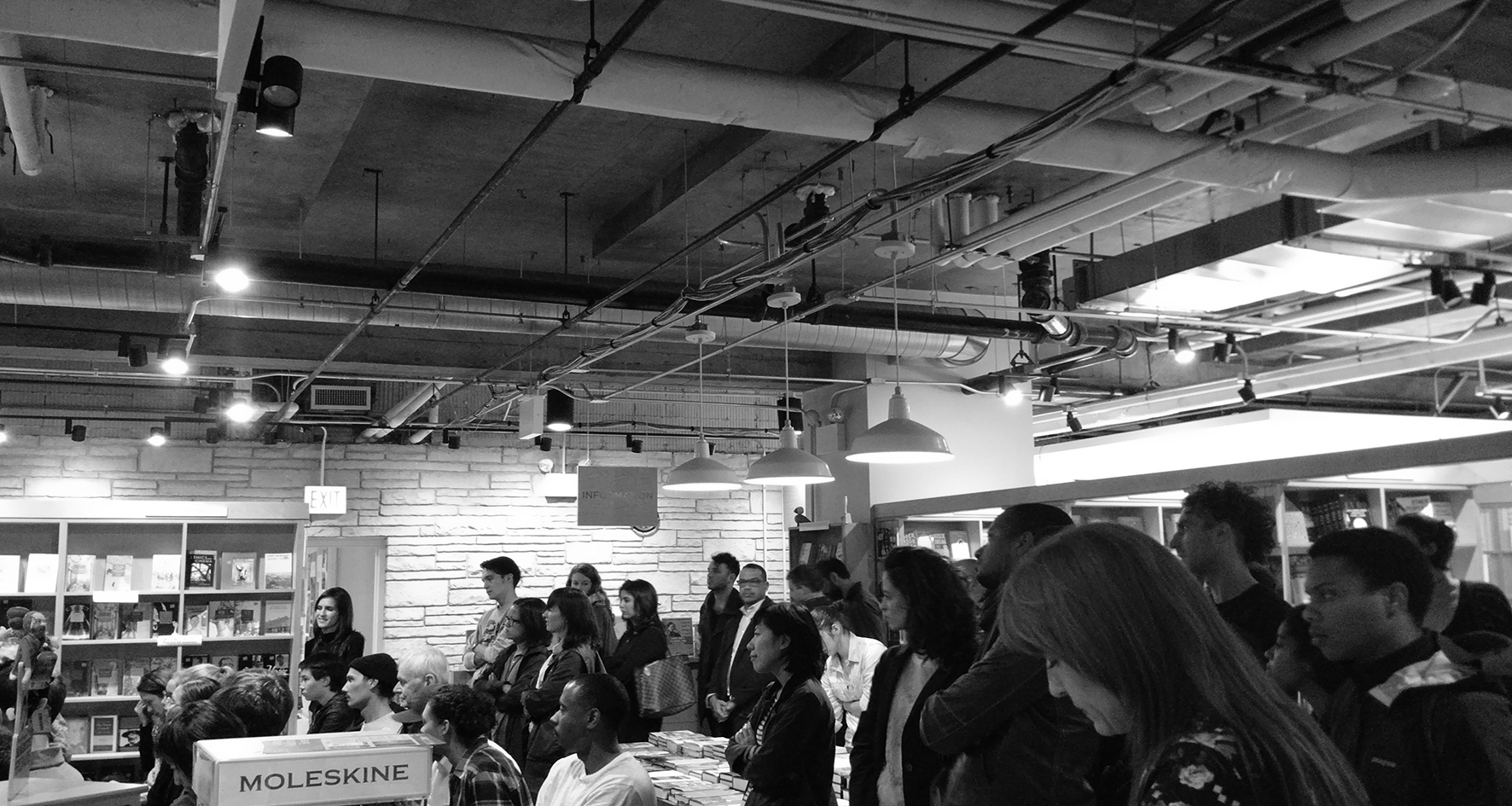Forrest Stuart, an assistant professor of sociology at the University of Chicago, joined Jamie Kalven, writer and executive director of the Invisible Institute, at the Seminary Co-Op last Wednesday to speak about Stuart’s new book Down, Out, and Under Arrest: Policing and Everyday Life in Skid Row.
As part of research for his book, Stuart spent time in the neighborhood and with the people of Skid Row, in Los Angeles. Skid Row, Stuart noted, has the highest concentration of reentering prisoners in the country.
Stuart argued that the omnipresence of police in Skid Row, where one can get ticketed or even detained for jaywalking or sitting on a sidewalk, takes a material, social, and mental toll on the residents. Under the constant threat of being stopped by police, they perform an identity that emphasizes their non-criminality. This “cognitive displacement,” Kalven added, shows that people in places like Skid Row and the South Side of Chicago are already situated in their society with “a fundamental loss of freedom.” However, the necessity of self-policing one’s identity, under the threat of incarceration and violence, rarely allows residents to notice these losses.
Kalven then noted that the kids on the South Side are all too familiar with this form of hyper-policing in their own neighborhoods. In every trivial interaction with the police, he argued, local youth are sure of two things: that the police have all the power in the situation, and if the encounter takes a turn for the worst, that people won’t believe them. Stuart remarked that the constant vigilance and performativity it takes to navigate hyper-policed landscapes not only makes it difficult to build communities, but it also leaves little mental room to think about everyday things like school dances, soccer practice, or dinner plans. This is a cognitive freedom that people living in more privileged communities often take for granted.
Nevertheless, Stuart mentioned grassroots organizations that are resisting hyper-policing, such as the Los Angeles Community Action Network, which is completely staffed by residents of Skid Row. Armed with video cameras, they document these interactions with police officers and use them in federal lawsuits and injunctions. In some ways, Stuart noted, hyper-policing practices have now allowed activists to force the police to become all the more visible.
Stuart also spoke to many police officers that worked in Skid Row. Many of the cops who were genuinely compassionate and wanted to improve the neighborhood were often, to Stuart’ s surprise, the ones who were the most repressive. On their watch, law enforcement was not used as a tool to fix criminal behavior but to make residents as uncomfortable as possible, so that they would stop “choosing” to be poor, homeless, or mentally ill.
Both Stuart and Kalven agreed that the overuse of policing forces is an indication of the failures of multiple American institutions, as well as a stark reminder of the limits of law enforcement. According to Stuart, Skid Row has depopulated and repopulated since the 1850s depending on the strength of the American social safety net. But potential solutions such as improving healthcare, offering decent wages and housing, or even just feeding students or investing in restorative justice and nonviolent resolutions, have been replaced by having more cops on every street corner. As Kalven noted, when this “quotidian use of police in everyday spaces” becomes normalized, people begin ignoring the roots of the issues that plague neighborhoods like Skid Row and end up relying on the police alone to repress the consequences.
Ultimately, Stuart argued, the police in Skid Row know that they are not social workers. But their compassion becomes lost and misguided when, as Stuart noted, the only resources they have are their guns, batons, and hands. The real issues lie beyond law enforcement’s influence—they are structural problems that demand a reevaluation of both American policing and politics.
Kalven remarked that this “post-Ferguson moment” in America is a “historical opening for fundamental change” in which we are “grappling with a set of structural patterns built into our society.” These issues with police accountability must be tied into a larger conversation about race in America, as it is impossible to change policing without acknowledging the fact that hyper-policing of certain neighborhoods is ultimately tied to racial segregation.
However, Stuart admits that it is hard to convince policymakers that a ticket or a brief detention can lead to significant consequences in a person’s life.
“Policymakers think that these are trivial incidents with officers,” he said. “They’re not talking to people who have five or more interactions a week [with police] just because of the neighborhood they live in.” But according to Kalven, there is “no way with our current inequalities that we’ve learned to accommodate that any sort of meaningful change can occur.”
“Gradually, incrementally,” Kalven argued, “we need to become a different kind of society.”

